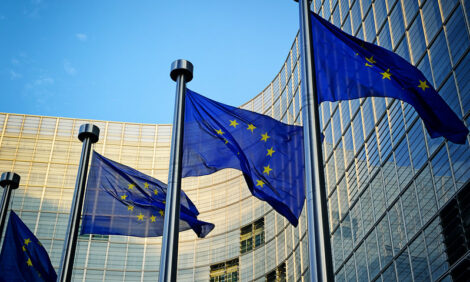



ABIEC Hits Back At Negative Mercosur Comments
BRAZIL AND THE EU - There has been much speculation recently regarding an EU-Mercosur trade deal. Here, Otávio Hermont Cançado, the Executive-Director of ABIEC (Association of Brazilian Beef Exporters) hits back at Irish and other agricultural organisations that have criticised Brazilian beef.Mr Cançado says that when the resumption of the EU-Mercosur negotiations was announced, the President of the European Commission, José Durão Barroso, declared that “Europe is seizing an important opportunity".
However since then, Brazilian beef has come under scrutiny from EU countries who believe that Brazilian beef is produced to a lower standard than that produced in the EU, and who believe that imports from Brazil are repeatedly failing EU standards.
Meeting EU standards
Mr Cançado says that Brazil welcomed no fewer than seven FVO missions from 2009 to 2010. On its last visit the FVO acknowledged “significant advances by Brazil in the health area”.
BSE
Michael Doran, National Livestock Committee Chairman of the Irish Farmers Association recently accused the EU of tolerating 'double standards' in it's criteria for importing Brazilian beef.
ABIEC points out that Irish beef has had 1,646 cases of mad cow disease since 1988 (and almost 100 cases since 2006), whereas the Brazilian herd has never seen a case recorded.
Foot and mouth disease (FMD)
Brazil’s last outbreak of FMD was in 2005, in an area bordering on Paraguay. The states of Mato Grosso do Sul, São Paulo and Paraná (an area the size of England and France) were banned from exporting to Europe, and tight restrictions were placed on Brazilian exports from late 2007.
The United Kingdom had outbreaks of FMD in 2007, but sale of British beef was, surprisingly, allowed within a few weeks.
Finishing in feedlots
In Hilton quota negotiations, Europe offered Brazil an extra contingent of 5,000 tonnes, doubling the quota. However it also imposed new rules for the quota, significantly hindering compliance with it. For example, the EU does not allow animals classifying for the Hilton quota in Brazil to be finished in feedlots, while American Hilton quota animals can be. Here, in fact, is an example of double standards, says ABIEC.
Deforestation
Whilst Mr Doran also highlighted the environmental costs of deforestation associated with an increase in Brazilian beef exports, ABIEC would like to point out that Brazil has broken records for the second year running in terms of a fall in deforestation, which is the result of improvements in inspection by the Brazilian authorities and private initiatives such as the monitoring by the slaughterhouse industry of its supply chain.
Mr Cançado says that Brazil boasts the world’s best tropical livestock technology, and has increased meat production by 227 per cent in thirty years, while increasing the area used by only four per cent.
Methane emissions per kilogram of meat fell by 29 per cent, the largest reduction among producing countries, while in Europe the same index rose rather than fell.
Conclusion
It is no secret that the agricultural and livestock farming industries in Mercosur countries would benefit from greater trade freedom between the two continents. But here the advantages would also accrue to both sides. Crisis-hit Europeans would be able to put cheaper, top-quality foodstuffs and meat on their tables, and Europe could reduce its subsidies to production, mitigating its serious fiscal problems.
TheCattleSite News Desk


